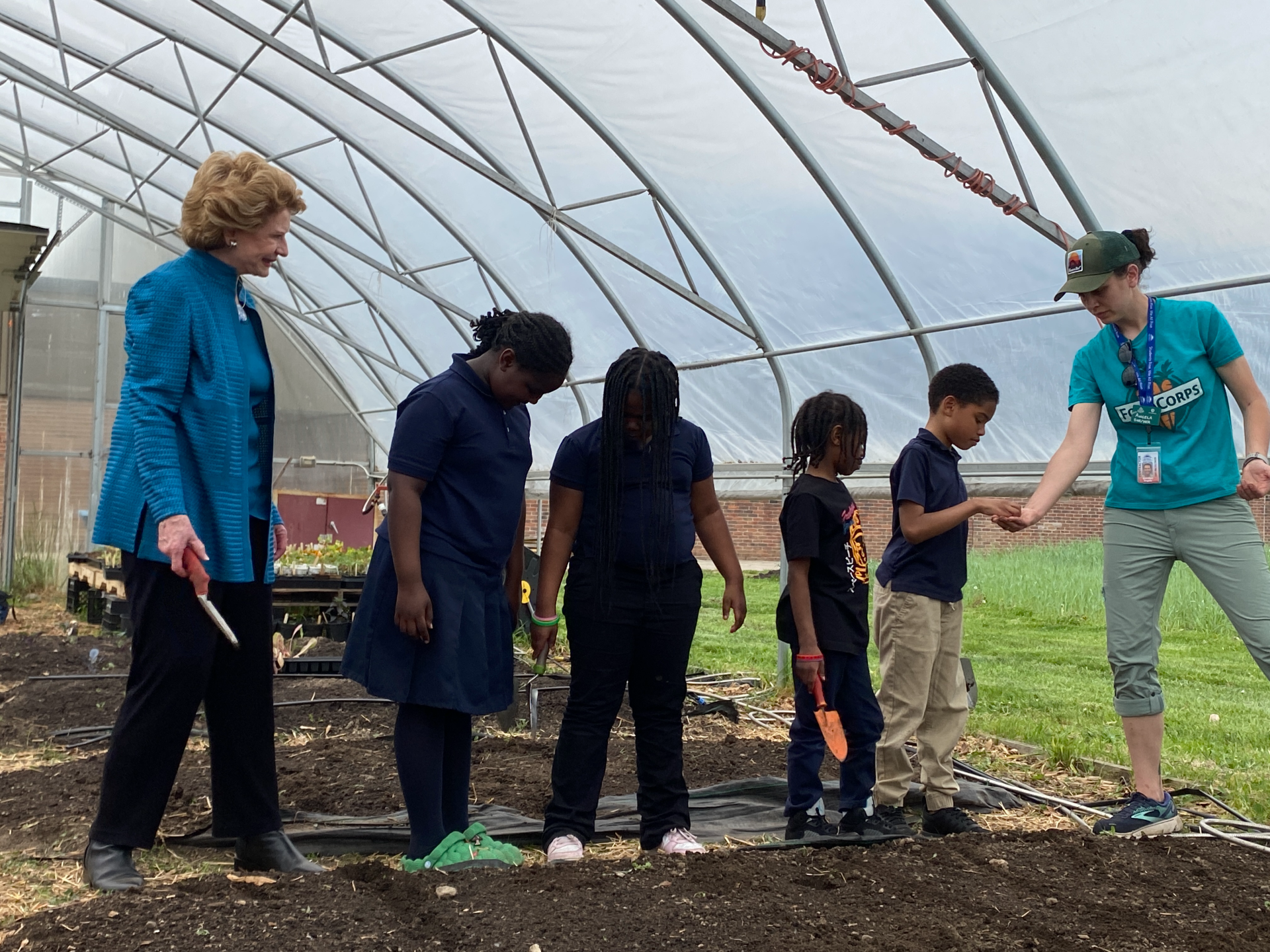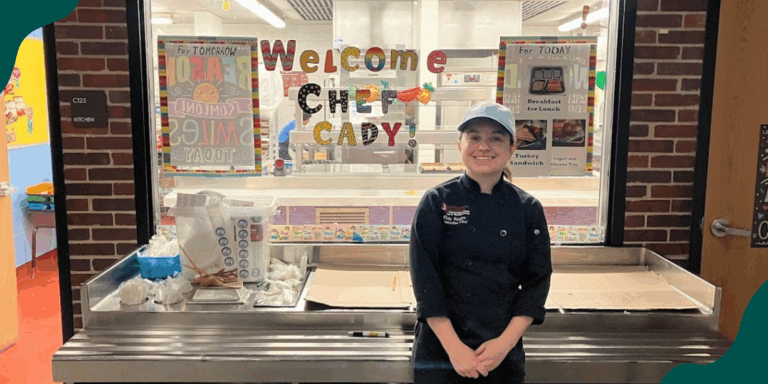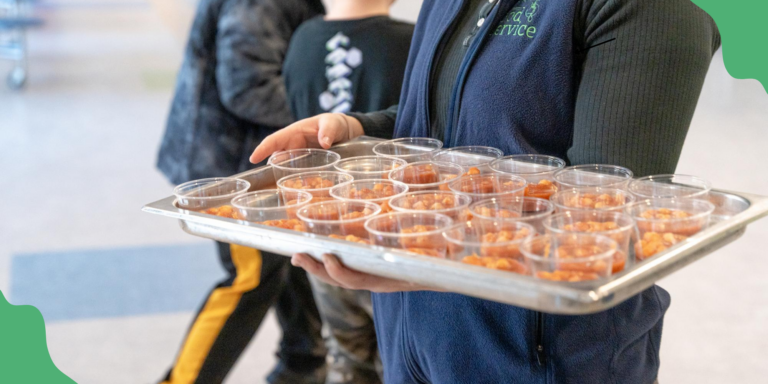Growing Investments in School Meals: May/June Policy Updates
Wins for free school meals, a site visit from a legislator, and other policy news to know.
Wins for free school meals, a site visit from a legislator, and other policy news to know.

We’re entering the summer months, typically a slow time for policy, but there are still updates to celebrate and learn from as we close the first half of the calendar year. Here are the policy and advocacy updates in school meals and child nutrition that you need to know.
The update: Earlier this year, FoodCorps played a big role in making free school meals for all a reality in New Mexico. Other states have followed suit and passed important free school meals legislation:
The more states that do this, the more likely it is that the federal government will pass a free school meals plan that is truly for all. By its nature, Congress often follows states’ successes, because those accomplishments build more consensus and provide guidance to federal lawmakers.
Why it matters: This is an important step toward our 2030 goal, as policy like this often bubbles up from states to the federal government.
What you can do: Share these wins on social media, and urge your elected officials to pass similar legislation.
The update: With President Joe Biden and Congress recently negotiating a debt ceiling agreement, important legislation like the Farm Bill should start moving forward again soon.
The debt ceiling is the cap on the amount of money the federal government can borrow to pay for programs; increasing the debt ceiling allows the government to spend more money. Without this agreement, there would be no money to spend in the Farm Bill or any other legislation. Negotiating these big, overarching agreements often takes all the air out of Washington as committee chairs don’t know what their parameters or budgets are.
Why it matters: In the case of the Farm Bill, which is directly tied to Supplemental Nutrition Assistance Program (SNAP) funding, Congress had to wait and see what the president and congressional leaders agreed to before moving forward. As of right now, the House and Senate are working on establishing the total dollar amounts that are available for appropriations bills like the Farm Bill.
What you can do: At the end of July, Congress will go on summer recess. This is a good time to talk to members of Congress about passing a farm bill, as members of Congress will be home and attending events with constituents.
The update: FoodCorps recently saw a huge win in Connecticut, where Governor Ned Lamont signed a suite of supportive school food policies into law. FoodCorps organizational and state network efforts, including Dawn Crayco (FoodCorps’ Northeast Policy Director) and lobbyist Janice Flemming-Butler leading the charge, and their network of supporters have resulted in a state commitment of:
Together, these programs will get more Connecticut-grown fruits and vegetables into Connecticut schools and provide school districts with incentives for purchasing food grown in Connecticut or the surrounding areas.
Why it matters: This is another big stride toward FoodCorps’ 2030 goal, and proof that FoodCorps’ partnership with local organizers can have lasting impacts.
What you can do: Celebrate this win on social media, and learn more about what work is happening in your state.
The update: Sen. Debbie Stabenow (D-MI) spent over an hour visiting Drew Farm, a FoodCorps service site in Detroit. A second grade field trip was learning at the facility during her visit and she eagerly joined their activities, including tasting veggie pasta salad and asking the kids what vegetables they like. Sen. Stabenow met farm staff and listened to their experiences on the farm. She then joined another rotation of kids planting corn and happily accepted a garden trowel and planted alongside the students in a row.
Why it matters: As more of these visits take place, we can show more people the value of food education and build a strong network of support in Congress.
What you can do: Follow FoodCorps Michigan on Instagram to get more behind-the-scenes snapshots of our work.

The Policy Brief: 2025 State Policy Updates

Alumni Spotlight: Cady Molloy, School District Executive Chef

6 Careers in Food That Make a Difference